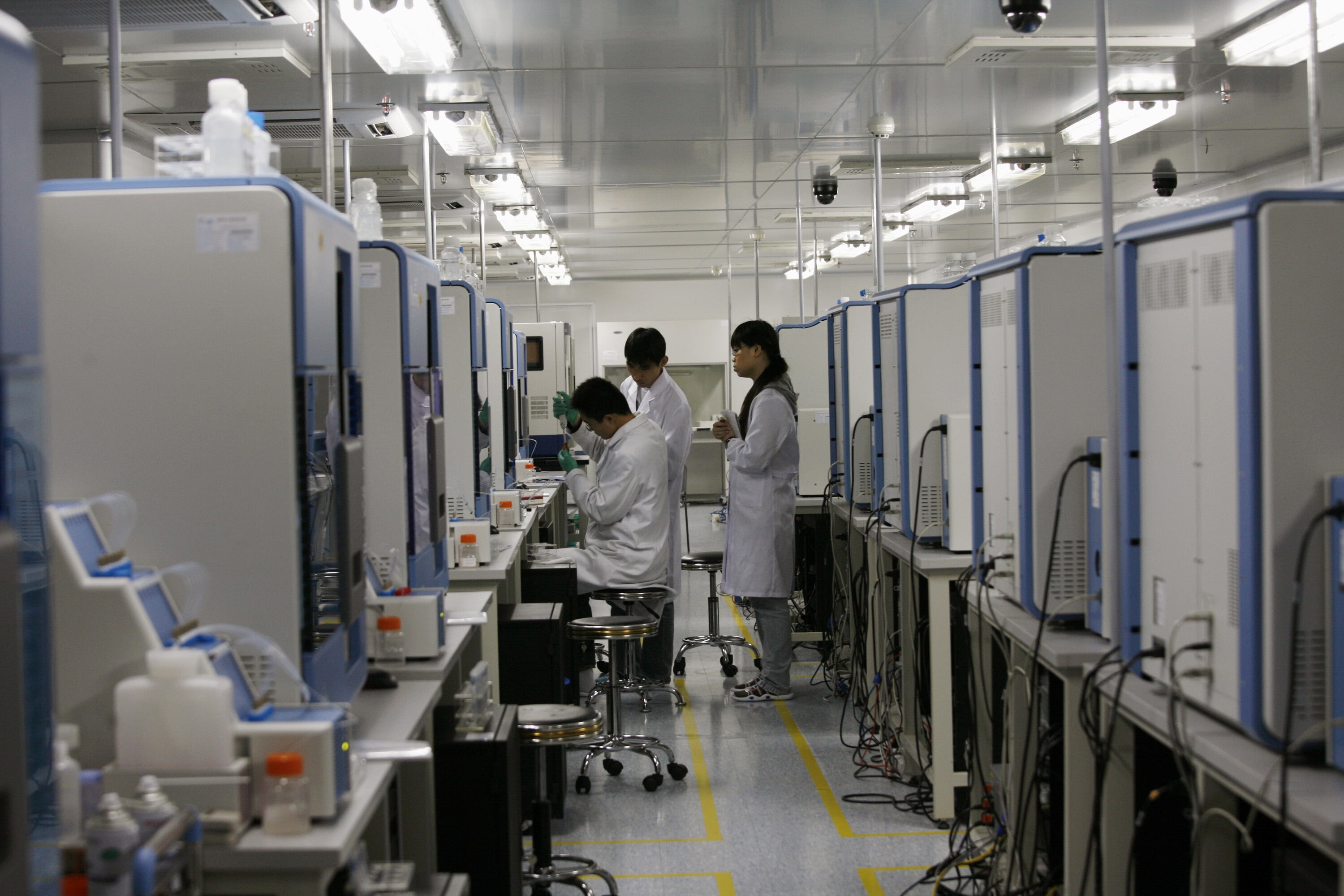COVID-19: What you need to know about the coronavirus pandemic on 2 December

People get tested for COVID-19 at a pop-up testing site in New York, as the first Omicron case is reported in the US.
Image: REUTERS/Brendan McDermid
Explore and monitor how COVID-19 is affecting economies, industries and global issues
Stay up to date:
COVID-19
- This daily news round-up brings you a selection of the latest news and updates on the COVID-19 coronavirus pandemic, as well as tips and tools to help you stay informed and protected.
- Top stories: First Omicron case reported in the US; South Korea records new record COVID-19 cases; UN chief slams COVID-19 'travel apartheid'; WHO to agree on global accord for pandemic prevention and preparedness.
1. How COVID-19 is affecting the globe
Confirmed cases of COVID-19 have passed 263.5 million globally, according to Johns Hopkins University. The number of confirmed deaths has now passed 5.22 million. More than 8.07 billion vaccination doses have been administered globally, according to Our World in Data.
Fears over the impact of the Omicron variant of the coronavirus rose on Thursday after the first case was reported in the United States, while the Japanese central bank warned of economic pain as countries respond with tighter containment measures. The first known US case was a fully vaccinated person in California who returned to the United States from South Africa on 22 Nov and tested positive seven days later.
South Korea's daily coronavirus case numbers rose to a new high on Thursday, as authorities halted quarantine exemptions for fully vaccinated inbound travellers for two weeks in a bid to fend off the Omicron variant.
The Omicron variant appears able to get around some immunity but vaccines should still offer protection against severe disease, according to the latest data from South Africa, where it is fast overtaking Delta to become the dominant variant.
Authorities in Indonesia have tightened border curbs, extended quarantine and limited movement on strategic toll roads, in a preemptive move to limit the spread of the Omicron COVID-19 variant should it reach Southeast Asia's largest country.
Germany is expected to impose restrictions on the unvaccinated on Thursday as it seeks to break a dramatic surge in daily coronavirus infections exacerbated by the discovery of the Omicron strain.
Omicron could become the dominant strain in France by the end of January, but meanwhile it should be possible to have a good Christmas if steps are taken to curb the Delta strain, France's top scientific advisor said on Thursday.
The Swedish Public Health Agency said on Thursday it could impose new restrictions as early as next week to fight the coronavirus pandemic and a rising tide of infections. Sweden introduced vaccine passes for indoor events with more than 100 people at the beginning of this month and indicated additional measures might be needed.

2. U.N. chief slams COVID-19 'travel apartheid' as unacceptable
United Nations Secretary-General Antonio Guterres said on Wednesday that travel restrictions imposed over COVID-19 that isolate any one country or region are "not only deeply unfair and punitive - they are ineffective."
Speaking to reporters in New York, Guterres said the only way to reduce the risk of transmission while allowing for travel and economic engagement was to repeatedly test travelers, "together with other appropriate and truly effective measures."
"We have the instruments to have safe travel. Let's use those instruments to avoid this kind of, allow me to say, travel apartheid, which I think is unacceptable," Guterres said.
Omicron was first identified in southern Africa and many countries, including the United States and Britain, have announced travel curbs and other restrictions on the region. Africa has some of the lowest COVID-19 vaccination rates worldwide due to a lack of access to doses.
Guterres has long warned about the dangers of vaccine inequity around the world and that low immunization rates are "a breeding ground for variants."
3. WHO to develop global accord on pandemic prevention, preparedness and response
The World Health Assembly agreed on Wednesday to kickstart a historic global process to strengthen pandemic prevention, preparedness and response.
Dr Tedros Adhanom Ghebreyesus, the World Health Organization's (WHO) Director-General, said the decision by the World Health Assembly represented a once-in-a-generation opportunity to strengthen the global health architecture to protect and promote the well-being of all people.
“The COVID-19 pandemic has shone a light on the many flaws in the global system to protect people from pandemics: the most vulnerable people going without vaccines; health workers without needed equipment to perform their life-saving work; and ‘me-first’ approaches that stymie the global solidarity needed to deal with a global threat,” Dr Tedros said.
“But at the same time, we have seen inspiring demonstrations of scientific and political collaboration, from the rapid development of vaccines, to today’s commitment by countries to negotiate a global accord that will help to keep future generations safer from the impacts of pandemics.”
The Health Assembly met in a Special Session, the second-ever since WHO’s founding in 1948, and adopted a sole decision titled: “The World Together.”
The decision by the Assembly establishes an intergovernmental negotiating body (INB) to draft and negotiate a WHO convention, agreement, or other international instrument on pandemic prevention, preparedness and response, with a view to adoption under Article 19 of the WHO Constitution, or other provisions of the Constitution as may be deemed appropriate by the INB.
Don't miss any update on this topic
Create a free account and access your personalized content collection with our latest publications and analyses.
License and Republishing
World Economic Forum articles may be republished in accordance with the Creative Commons Attribution-NonCommercial-NoDerivatives 4.0 International Public License, and in accordance with our Terms of Use.
The views expressed in this article are those of the author alone and not the World Economic Forum.
Forum Stories newsletter
Bringing you weekly curated insights and analysis on the global issues that matter.
More on Health and Healthcare SystemsSee all
Bushra AlBlooshi, Hoda Al Khzaimi and Heba Ahmad
October 8, 2025
Hoda Al Khzaimi, Bushra AlBlooshi and Heba Ahmad
October 7, 2025
Joan-Paula Bor and Kathleen Schmeler
October 6, 2025
Naoko Tochibayashi
October 3, 2025
Gabriel Onuh
October 1, 2025





